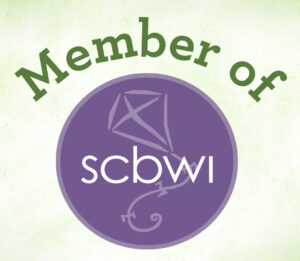Carla: We had a great conversation on Midday Connection and it raised some important questions in the comments on the blog. One issue came up in Dave’s set of comments on this post–and we know it will come up again and again and again so we are going to dig into it a lot deeper. And I want to be clear about something. We are not picking on Dave–he is voicing an opinion that we hear a lot and we appreciate his participation in the Revolution conversation. This post isn’t about Dave. It’s about an ideology that we just don’t buy. It’s this whole idea of motherhood as a calling.
As you can probably guess, we wouldn’t call it that. Not because motherhood isn’t wonderful in many, many ways and not because we don’t believe God led us toward the lives we are living. We firmly believe that motherhood matters–a lot, that it is honorable and godly and worthy of respect and praise. No, we wouldn’t use that word because we think it’s problematic. Here’s why:
1) It’s not biblical. Seriously, name one Bible verse that says motherhood is a calling. There aren’t any. There are, however, huge chunks of the Bible that tell us what we are called to as Christians–one could even say that’s kind of the point of the whole thing.
- Deut. 10:11-13 is a longer version of something called the Shema (found in Deut. 6:5) which the nation of Israel held as its central calling. “And now, Israel, what does the LORD your God ask of you but to fear the LORD your God, to walk in obedience to him, to love him, to serve the LORD your God with all your heart and with all your soul, and to observe the LORD’s commands and decrees that I am giving you today for your own good?”
- Micah 6:8 says something similar: “He has shown all you people what is good. And what does the LORD require of you? To act justly and to love mercy and to walk humbly with your God.”
- Jesus talks about feeding the hungry, clothing the poor, caring for the needy. He doesn’t give an exemption for those of us with young children. Jesus includes women in his call to go into the world and make disciples. He never says a thing about calling women toward something else. He doesn’t give women what Dave calls a “proper focus,” he gives all people who follow him the same call–take up your cross.
- Paul’s letters go into great detail about what the Christian life looks like and he rarely mentions parenting, much less motherhood. In fact, Paul is pretty clear–as was Jesus–that family life can often get in the way of following God. When parents are spoken of at all, it is in regard to their relationship to their children and the importance of honor and respect in that relationship. Paul spends most of his writing time teaching Christians to care for each other, to work together, to overcome their differences and find unity in their faith. He doesn’t single parents out as having a calling that is somehow more godly than others. In fact, he says the opposite–the body has many parts and all are needed.
In general, parenthood in the Bible is a means to some other end. There are only a handful of specific examples of women being somehow chosen to have children: Sarah, who gave birth only after decades of praying for a child; Hannah who prayed and prayed for a baby only to offer that child, Samuel, back to God when he was a toddler; Elizabeth, the mother of John the Baptist; and Mary, who was chosen to be the mother of Jesus. But those stories are not about how those women were called into motherhood for its own sake. Each of those stories is the launching point for the next part of God’s story. These are not stories about motherhood, but about faithful women who were mothers. They weren’t called to motherhood but to faith. The Bible shows us how to live as God’s people–and that impacts our parenting. But the Bible doesn’t say much about how we are to think about parenthood.
2) People keep using that word. We don’t think it means what they think it means. One of the best sermons I ever heard was about this idea of calling. The pastor talked about how blithely Christians use that word when in truth the Bible uses it very rarely. So there’s a difference between the actual sense of calling as it’s used in the Bible and the way most people use the word. Caryn and I both feel like we have followed God’s lead in the lives we have. But I have never felt called to motherhood. I feel called to be a good mother. I feel called to love my children like crazy, to teach them, to care for them, to protect them, to send them into the world as thoughtful, compassionate people who love God. But that is my calling as a Christian–to love the Lord with all my heart and soul and strength, to love my neighbor (which in this case means my children) as myself, and to teach this to my children. The call of Christ compels me to be a loving, caring parent. It doesn’t compel me to be a parent.
3) It boarders on idolatry. Dave made a statement that troubles me to no end. It is just the kind of statement that sends a deeper message to mothers: Dave mentions that a woman’s proper focus is the family. I’m not sure where he gets that. Well, I know where he gets it, but I don’t know what biblical basis he has for that statement. As I said, the gospel doesn’t include specifics about parenting. Jesus didn’t exempt mothers from participating in God’s work in the world. And Jesus wasn’t just talking to the men when he told his followers to feed and clothe and visit the poor and imprisoned. The idea that my three children are more important than other people goes against everything the Bible teaches. It makes an idol of my family. So I can’t justify having tunnel vision about my parenting. I can’t call myself a Christian and then live a life that centers only on a small, select group of people–no matter how much I love those people. And I can’t fathom God giving me gifts and passions and dreams with the intention that I limit the use of those to the lives of three people. There is a huge, hurting world out there and mothers–with our heightened compassion, our deepened sense of justice, our ever-growing longing for a better world–are uniquely qualified to get out there and work toward bringing about the kingdom of God. I could go on and on about mothers who have changed the world, but we’ll save that for another post.
4) It’s a dangerous, damaging way to think about motherhood. If we hold motherhood up as a divine calling, we imply that it is something a woman is chosen for, that she is selected by God to do. So what about those women who long to be “chosen” for motherhood and aren’t? What message does it send to childless women when we tell them that God only chooses some women for this special calling? I’ll tell you what that message is: it’s that they are the problem, that they are unworthy of the call. I know that’s what they hear because my friends who have battled infertility or who are single and long for families tell me that’s what they hear.We can encourage and support and value motherhood without turning it into something that creates pain in the lives of our sisters.
5) It ignores dads. I find it ironic that the same people who hold up motherhood as a calling rarely talk about fatherhood as a calling. If anyone has a link to a book, an article, an anything that discusses fatherhood as a calling, please link to it in the comments because I would love to be wrong about this. Ironically, it also seems to me that the people who believe motherhood is a calling often hold to a view of the man as the spiritual head of the family as well. In that case, why isn’t the dad the one staying home with the kids? If he’s the head, why is he the one leaving for 40 hours a week? The absence of a father in a child’s life creates a whole host of issues that are far more damaging to a child than having a mother who has a job.
6) Add all of those together and you have faulty theology. Dave is the father of 11 children and I imagine he and his wife are wonderful parents. But the problem with what Dave is saying is something that sits at the core of the Revolution: Every family is different, every mom is different. So when someone suggests that what they have and experience is the best way–and the only real Christian way–to parent or think about the family, they take away the possibility that God might have a different path for other families.
Those of us who feel perfectly content (or not so much content as done) with the one or three or six children have don’t believe we are somehow being selfish or not following God’s leading. It’s possible that we have made those decisions with heartfelt prayer and felt God’s clear leading. Dave and his wonderful, extraordinary wife have chosen a life that is simply not for everyone. They have been blessed with a big, happy family and that’s clearly where they have felt God leading them. But other families are led down different paths. And thank God. Because the world needs Christian people in every vocation, in every walk of life. We need men and women who focus on the world around them and not only on their own homes. That’s the divine calling–to go into the world and make disciples of all nations.
Caryn: Preach it, Sister!
I’m so glad you started this topic. Because yesterday—in a comment back to Dave (and I wasn’t bashing you, buddy. I really appreciate your sense of humor. My toes do feel better!)—I called motherhood a “calling.”
But ever since I wrote that, I’ve wondered if I really believe it to be true. And I think I’m with you, Carla–for the reasons you write. You know the Shema and all (Props to Fuller Theological Seminary in beautiful Pasadena, Calif. They taught you good!).
I do feel called to raise my particular kids. I know God gave me the amazing little creatures to raise—and am eternally grateful (and exhausted) for it. But I have never felt lead to motherhood in a divine sort of way. (For what it’s worth, I do feel lead—divinely so—with the Mommy Revolution. This is nothing if not a God-thing, people. You don’t even know….)
However, I believe some women do feel called to motherhood. I’m thinking right now of a woman I know who without a doubt knew she was meant to be a mother and felt lead to adopt. Can I say this isn’t a divine calling? I don’t think so.
But it all comes back to this: Whether or not we have kids, whether or not we are “gifted” in the 1950ish sense of motherhood, whether or not we use birth control, whether or not we would cry or celebrate upon learning we were pregnant, a woman’s “proper focus” is on God, not family. I think you’re right, Carla, that a focus on the family (ahem) is idolatrous. I say, Focus on Jesus. (You can start humming “Turn Your Eyes Upon Jesus” for better effect. Love that song!)
Even Dave says God should be our number one. And that means, we look to him (God, not Dave) and to how he made us and to how he wants us to love and raise our kids and how we wants us to use our gifts and our lives. And, as Carla wrote, how he wants us to make disciples of all nations.
Sounds like that’s what Dave and his big wonderful family are doing. And that’s what we should too. I’m just glad we can make disciples without literally making them. If you catch my drift…









